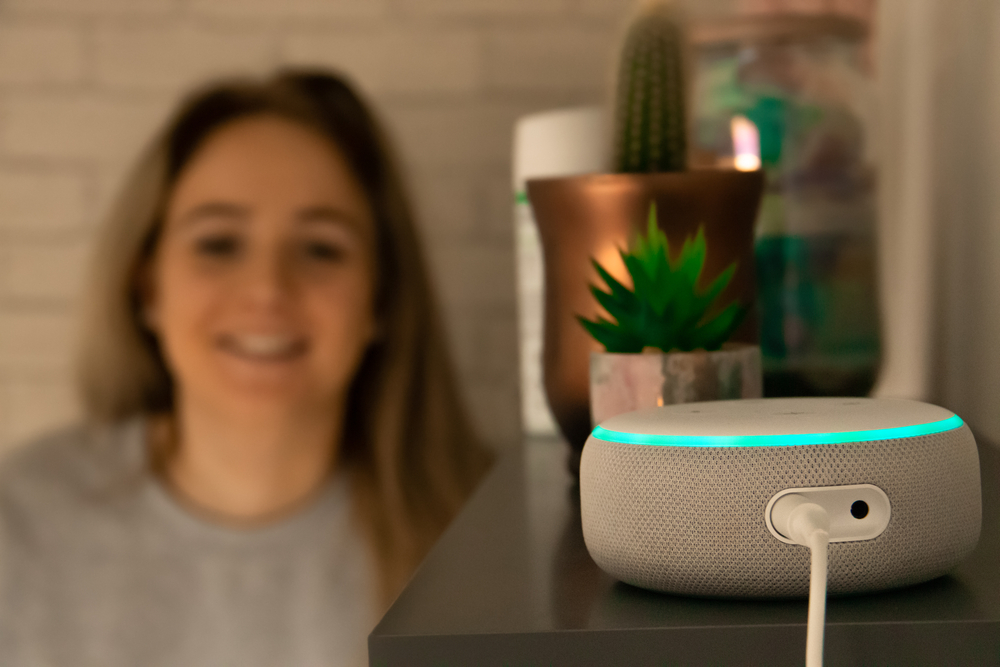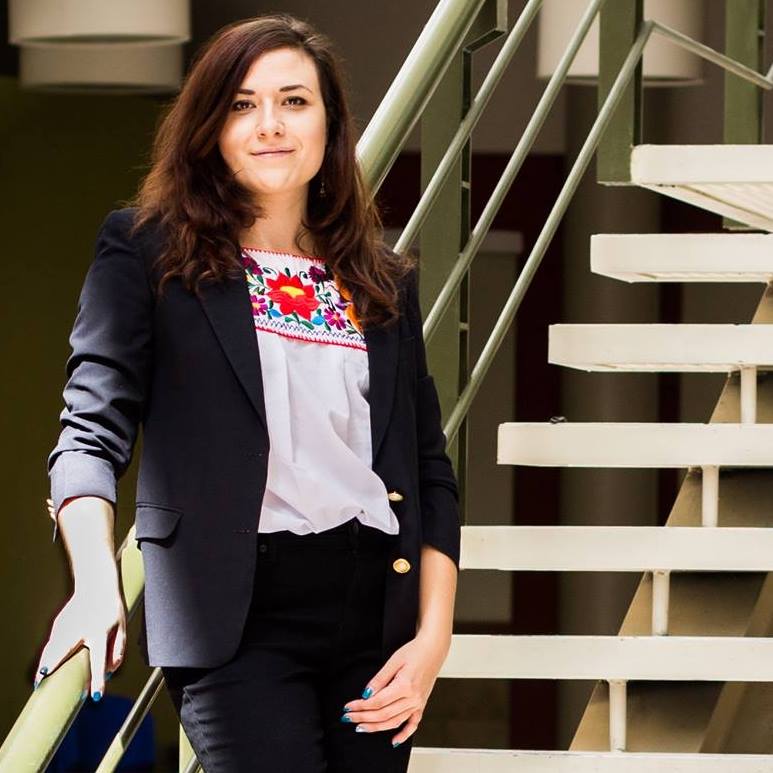The risks of smart speakers. ‘All magic has a price. So does the magical smart home’
They make coffee for us and remind us to put out the garbage container. Smart speakers with voice assistants facilitate daily life. But in her thesis The Enchanted House, legal scholar Silvia de Conca warns of the dangers of the gadgets. “Even if they work properly, there is a risk of privacy violation,” she says.

Amazon’s Alexa and Google Assistant: these are the two best-known smart assistants, which are rapidly gaining popularity in the Netherlands, as well as in the United States. By connecting the speaker to other smart devices via a Wi-Fi network, the user can perform all kinds of actions by simply saying a command out loud. Say for example “Alexa, play Let it Go“, and the soundtrack of the Disney movie classic pops out of the speakers.
During her PhD research, legal specialist Silvia de Conca found that Alexa and Google Assistant don’t just bring happy notes into the household. She tested the data collection methods of smart speakers against the General Data Protection Regulation, and concluded that the products manipulate, influence, and even affect their customers’ autonomy.
And the fact that these practices all take place in the clients’ homes surprised her. Because if anything is sacred to the law, it’s the private sphere.
Smart speakers that do chores for you, I think that’s really handy. But you warn against using them. Why is that?
“While writing my thesis, an image popped into my head: a scene from Beauty and the Beast. In that movie there is a mansion in which objects have come to life. They used to be servants, now they are objects that do small tasks for Belle. That house is magical, and I think the scene is a beautiful depiction of a smart home, one that is filled with technology that listens to you and does things for you.
“But of course, magic has a price, that’s true in any fairy tale. In this case, the price is that the sensors of smart technology convert our behavior at home into data. In the scientific literature this is called “commodification”; turning human activity into an economically valuable product. All voice commands given to Alexa or Google Assistant are stored online.
“A smart TV looks like a regular TV. And that makes us unsuspecting”
“From that data, companies can, via machine learning, extract new information each time. Once their software recognizes my voice, it automatically comes up with another, new question to find out about me. How I sound when I’m emotional, for example.
“We need to be alert to how companies are using our data. In addition, from an online security standpoint, consider identity fraud, it’s not wise if a lot of personal information is stored online.”
Everywhere we go, our data is captured. So what makes Alexa and Google Assistant problematic?
“Smart devices look like traditional products. We are used to some of those devices, like the telephone, bringing the rest of the world into our living rooms. Regarding a computer, we also know that it operates through the Internet and sends out information. But a smart TV looks like a traditional television that only transmits, and this makes us a bit unsuspecting.
“We don’t expect that by buying a smart TV we’re punching yet another hole in the safe walls of our home. A hole through which the outside world can enter, but also through which a lot of information in the form of data about our private lives disappears outside. Smart speakers, connected to household appliances, replace traditional devices without changing our perception of them.

“So as a customer, you have to be very well informed. For example, you have to know that if you ask Alexa to play a song, the speaker will keep recording until the song ends. Because I don’t think every consumer is that well informed, I’m warning.”
In your thesis, you emphasize the presence of smart speakers in the home. Why is the home special?
“The law often says that the home should be able to count on special protection. But laws only put something into words. The “home” is actually a socio-cultural concept. I therefore looked at literature from the behavioral sciences and anthropology to determine what role the home plays in society.
“In short, it comes down to this. People attach themselves to a place and perform rituals to appropriate that place. Think of decorating. An emotional attachment then occurs, the moment a ‘house’ becomes a ‘home’.
“That is why most people feel safe in their homes and experience comfort there. This safety is necessary for their development. To function well in the outside world, humans need a safe place to retreat to.
“Consumers need to realize who owns the magic of the enchanted house”
“Smart voice assistants are entering the private sphere, invading privacy. This is well illustrated by a famous example of an American couple. They were discussing which bathroom tiles to buy, and their Alexa sent that conversation in full to a colleague. The wife of that couple then no longer felt safe in her own home and got rid of the smart speaker.
“By setting up a smart speaker, the home is no longer as private as you would expect and, according to the GDPR among other things, it should be. Even if the device works like it should, by the way. Even then it’s constantly collecting data, and that can also cause an unsafe feeling.”
Do you understand why people weigh the potential dangers of a smart speaker against the convenience and go for one anyway?
“I can definitely relate to that. A smart speaker makes life a lot more comfortable. From a legal point of view, however, it is important for people to stand their ground when it comes to privacy issues. Privacy is not a purely individual matter, although it is often thought of as such.
“Maybe I don’t mind Google collecting data in my living room, that’s possible. But in doing so I am lowering the threshold for my fellow citizen. Someone else might be more dependent on smart assistants and, therefore, in a more vulnerable position. That can be exploited by one of the tech companies. That’s why, as a society, we shouldn’t allow it to get to that stage.”
What measures do you propose?
“What I think would already help is if some of the retrieved data is not stored online. Storing on the device is safer than in the cloud. In addition, the government should be able to regulate the tech companies. For example, it should be clear what they are collecting and storing the data for. ‘To be able to improve the product’ is not enough.
“And then I also come back to the conceptualization. Tech companies are good at pretending that smart speakers are a service to consumers. Because it makes our lives easier. But at the end of the day, of course, they have a profit motive. It would be good if consumers realized who actually owns the magic of the enchanted house.”






